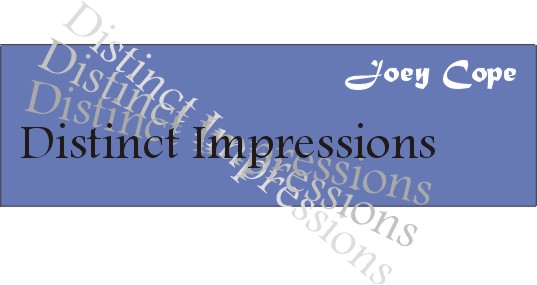
This morning, I was able to hear an excerpt from President Obama’s press conference in China. This trip has seen what appears to be purposeful disrespect from the Chinese, the announcement of North Korean missile test firings, a missed opportunity to come to agreement with Russia about the conflict in Syria, and now an open challenge from the Philippines president as to what our President may or may not address in upcoming conversations. President Obama, arguably the most powerful individual in the world, responded with diplomacy.
No, my right-leaning friends, it wasn’t weakness on his part. And no, my left-leaning friends, it wasn’t genius.
[heading size=”20″ margin=”30″]It was diplomacy.[/heading]Whether they were well-planned or spontaneous, his answers were appropriate and, well, diplomatic. By addressing the inquiries with calmness, reflection, and a careful choice of words, President Obama assured that he — and thus we, as a nation — continued to have a place at the table. I appreciate diplomacy. It keeps dialog alive.
I am not a fan of all of President Obama’s policies and strategies. Yet, I do respect him and the way that he goes about his work. Among many other good things, he is a diplomat.
Odd, isn’t it, that we have chosen a system of elections that no longer honors diplomacy? Instead, we now seem to appreciate and value violent confrontation. Perhaps it isn’t always physical, yet we have seen rhetorical violence lead to violence. We teach our children that shouting louder, exhibiting anger, and refusing to consider ways to work together is the way to get ahead in life. In polite parenting circles and in our parent-teacher conferences, we decry such behavior. Yet, that’s what we demand of the candidates in our political system. Our children are our witnesses to our choices.
[heading size=”20″ margin=”30″]Our current election system is focused on power.[/heading]Here’s a short history lesson: When power dominates, over time we push for laws to form boundaries to limit power. When laws abound, bureaucracy grows. When bureaucracy grows, certain groups, empowered by the privilege created by bureaucracy assemble power. You would assume that this would be an endless cycle. But every so often there is a hiccup. Those not empowered become frustrated and desperate. Revolution. Chaos. A new power base is formed — often from an outside force that celebrates this moment of weakness. Rarely is this disruptive force beneficial.
The only remedy for this self-destructive path is dialog, understanding, and collaboration. Yes, my colleagues and my students in conflict resolution, the answer is a focus on the interests of all involved. Diplomacy is an essential part of the picture.
Yet, we, the voters, demand blood.
I left out another important piece of that history lesson. Most often, the voters get what they ask for.
Maybe we should be asking for more diplomacy, longer sessions at the table and fewer knock-out blows.
Remember, most often, you’ll get what you ask for.

Joey,
I appreciate civil discourse. Inside our national election processes, we haven’t seen such in some time. Keeping dialogue going can be a two edged sword, however. Those in power (and someone always has an upper hand) who keep the dialogue going can be seen as, or in actuality are, stalemating progress. “How long will this take?” is almost always at play when it comes to those who want to see things done differently.
Genuine dialogue is difficult to achieve, especially with much at stake. Who is doing this well (beside the specific story you reference above)? I hope to be part of helping genuine dialogue happen more and more and would appreciate knowing who is achieving this now.
Jon,
For many years, groups like the “Public Conversations Project” (http://www.publicconversations.org/) have seen remarkable success in initiating and sustaining dialog. Their site points to a number of initiatives and discussions that have been handled well.
I think the frustration that you feel (and that many of us feel) is from the lack of movement following dialog. It seems that good and reasonable people are having the good conversations but ways to move these ideas into the mainstream are stymied by those holding power. A lot can be accomplished out of a grass-roots movement, but many of these “success stories” remain at a low level. Lack of resources, lack of widespread recognition, and lack of a well-known champion are the primary threats to viability.
A current example of a public dialog linked to action is the Racial Unity Leadership Summit (RULS). I am grateful to certain highly-committed, energy-producing folks who have continued to push forward on the ideas generated in the dialog. Yet, progress remains challenging because of competing interests and long-present paradigms that work against progress. As a case in point, I was very involved for a season, but as work responsibilities shifted I lost traction in this great work. Again, God has provided some champions. However, these good people can be consumed in the effort.
We must find a way to move productive dialog to action. My article simply highlights the problem — an aversion to dialog in deference to the hunger for power.
Let’s talk. The Duncum Center made a brief entry into this a few years back, but immediately hit the pushback. More minds thinking will produce better ideas.
Joey, I received the following message when I attempted to share this on FB.
“This message contains content that has been blocked by our security systems.
If you think you’re seeing this by mistake, please let us know.”
Is your voice of reason being targetd by FB?
Hmmm? That’s curious, Ken. I guess that I’ve been identified after all these years. I’ll look into this. If you don’t hear from me again in the nex . . . . . . . . . .